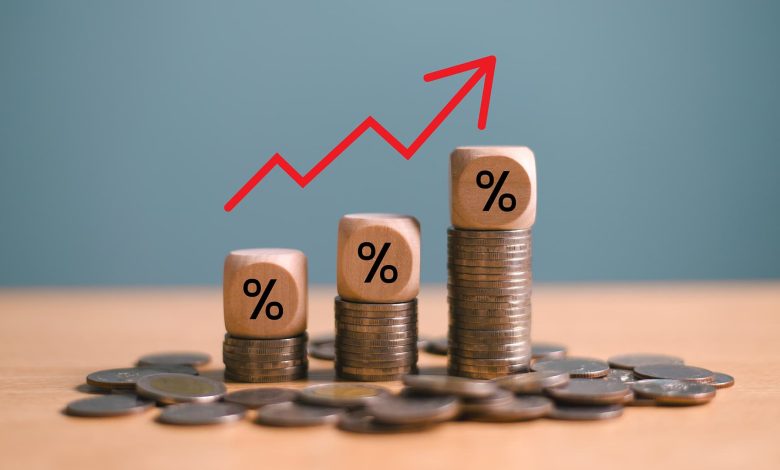The Silent Architect of Financial Transactions: Understanding the Role and Relevance of a Broker

In a world driven by commerce, investment, and constant exchange, few roles remain as pivotal—and yet as often misunderstood—as that of the broker. From bustling stock markets to real estate boardrooms, from insurance policies to global shipping contracts, brokers are the unseen architects who bridge the gap between ambition and achievement, seller and buyer, opportunity and execution. But what exactly does a broker do? Why are they indispensable? And how has their role evolved in an increasingly digital and decentralized marketplace?
This article dives deep into the multifaceted world of brokers, shedding light on their value, ethics, and future in an ever-shifting economic landscape.
The Broker Defined: A Bridge, Not Just a Middleman
At its core, a broker is an intermediary—an individual or firm that connects parties in a transaction, ensuring that goods, services, or assets are exchanged smoothly, fairly, and often, profitably. But to call them merely a “middleman” would be to oversimplify a role that frequently demands specialized knowledge, market insight, negotiation skill, and a strong grasp of regulatory frameworks.
Unlike salespeople, who typically represent one side of a transaction, brokers act on behalf of clients and, in many cases, maintain fiduciary responsibilities. Their loyalty is to the deal, to its fairness and success, rather than to personal or corporate gain.
Types of Brokers and Where They Operate
The term “broker” encompasses a diverse array of professionals operating across various industries. Each field brings its own set of challenges, responsibilities, and expectations:
1. Stock Brokers
Arguably the most well-known type, stock brokers facilitate the buying and selling of stocks, bonds, and other securities. They often provide investment advice, portfolio management services, and research insights.
2. Real Estate Brokers
Real estate brokers coordinate the buying, selling, or renting of properties. Unlike real estate agents, brokers often have higher certifications and can own or manage real estate firms.
3. Insurance Brokers
Insurance brokers work with clients to identify appropriate insurance policies across different providers. Their role is to ensure coverage is comprehensive and cost-effective without direct allegiance to any one insurer.
4. Mortgage Brokers
These professionals connect borrowers with lenders, helping individuals secure home loans that best fit their financial profile.
5. Freight Brokers
In global logistics, freight brokers arrange the transportation of goods by linking shippers with carriers, handling coordination, paperwork, and compliance.
6. Commodity Brokers
Specializing in the trade of physical goods—such as oil, gold, or agricultural products—commodity brokers navigate highly volatile markets where timing and precision are everything.
What Makes a Good Broker?
The best brokers share a common DNA—part advisor, part analyst, part negotiator. Their success often hinges on attributes that go beyond industry knowledge:
-
Trustworthiness: Integrity is non-negotiable in a role that involves handling significant transactions and sensitive information.
-
Market Acumen: An effective broker remains constantly informed, understanding not only present market conditions but also anticipating future trends.
-
Communication Skills: Whether explaining complex terms to a client or negotiating with a counterpart, clarity and tact are crucial.
-
Problem-Solving Abilities: Markets are dynamic, and deals often encounter hurdles. Brokers must think quickly and act decisively to protect their clients’ interests.
-
Licensing and Compliance: A commitment to continuing education and regulatory adherence reflects professionalism and reduces liability.
The Ethical Dimension of Brokerage
Brokers operate at the intersection of capital and decision-making. This power requires an ethical compass. Conflicts of interest, opaque fees, or misleading information can erode trust and damage reputations.
Regulatory bodies, such as the Financial Industry Regulatory Authority (FINRA) in the United States or the Financial Conduct Authority (FCA) in the UK, exist to safeguard the public and enforce accountability. But true ethics go beyond compliance—they stem from a broker’s own commitment to transparency, honesty, and service.
The Rise of Technology: Disruption or Evolution?
With the advent of algorithmic trading, digital platforms, and robo-advisors, some predicted the decline of the traditional broker. And yes, automation has transformed certain aspects of brokerage—especially in financial markets—by reducing fees and increasing speed.
However, rather than replace brokers, technology has forced an evolution. Today’s most successful brokers harness digital tools to better analyze data, reach clients faster, and deliver more customized advice. For complex or high-stakes transactions, human judgment still reigns supreme. A software program might calculate risk with flawless precision, but it cannot replicate intuition, experience, or empathy.
When and Why You Should Use a Broker
There are instances where direct dealing may suffice—simple stock purchases, peer-to-peer property rentals, or straightforward insurance renewals. But for more significant or complicated transactions, brokers offer undeniable advantages:
-
Access to Exclusive Opportunities: Brokers often have access to deals or markets not available to the public.
-
Risk Mitigation: Their expertise helps clients avoid costly mistakes.
-
Time Efficiency: Navigating paperwork, regulations, and negotiations takes time. A broker streamlines the process.
-
Negotiation Edge: With a deep understanding of market value and terms, brokers often secure more favorable outcomes.
Looking Ahead: The Future of Brokerage
As the global economy becomes more interconnected and financial instruments more sophisticated, the demand for expert guidance grows. While digital tools will continue to handle the routine, human brokers will likely specialize further—becoming strategic advisors, consultants, and long-term partners in wealth building or asset management.
The modern broker must therefore combine the analytical edge of technology with the personal touch of a trusted confidante. In many ways, the future belongs not to the fastest or flashiest, but to the most adaptable and insightful.
Final Thoughts
A broker’s value lies not just in their ability to connect buyers and sellers, but in their talent for orchestrating transactions that might otherwise falter in complexity or indecision. Whether guiding an investor through volatile markets or helping a family find their dream home, brokers wear many hats—and in doing so, they remain one of the most essential and enduring figures in commerce.
In an era that prizes both speed and authenticity, the ideal broker will be someone who blends precision with perspective, and data with discernment. As long as people seek smarter decisions and better outcomes, the broker will remain, quietly but indispensably, at the center of the deal.



